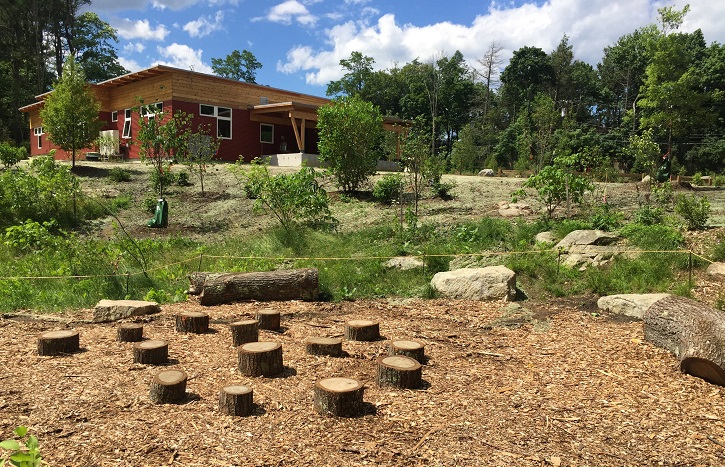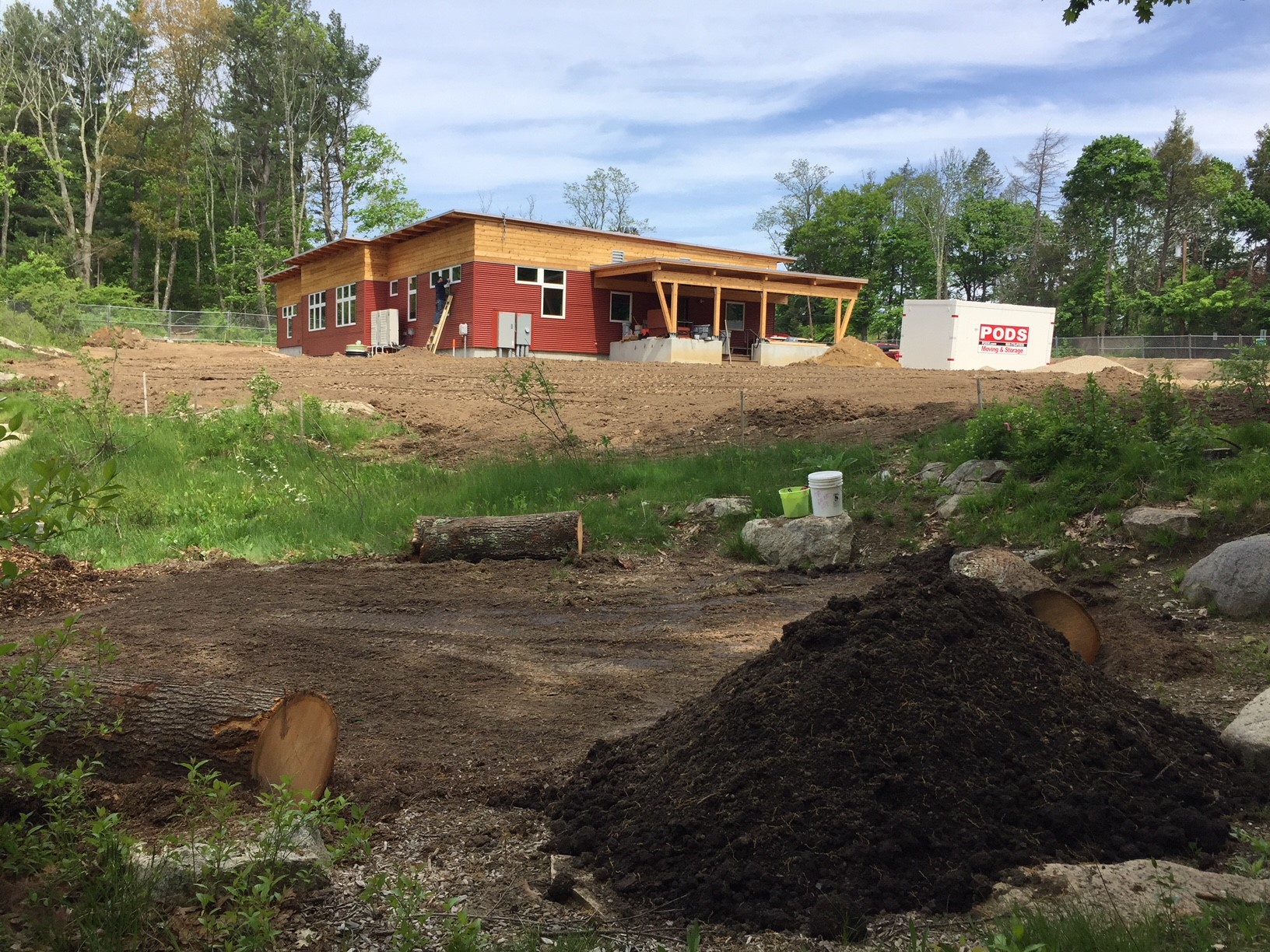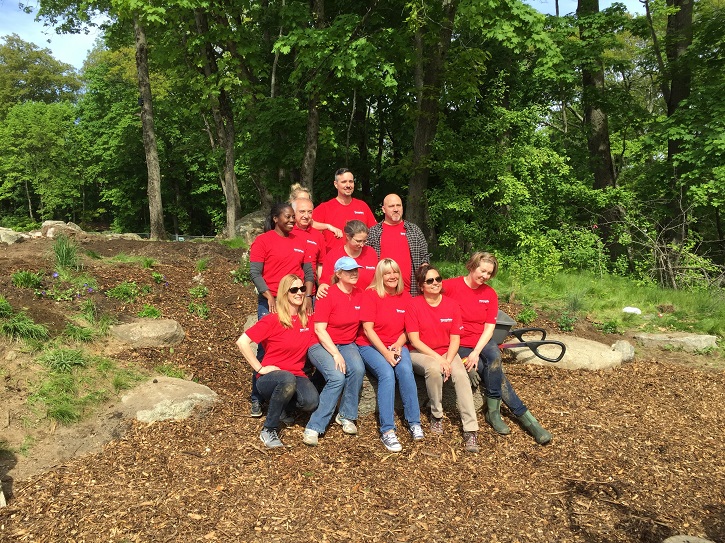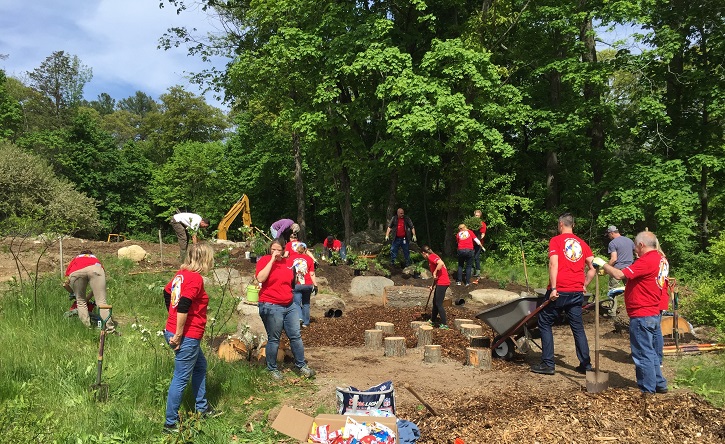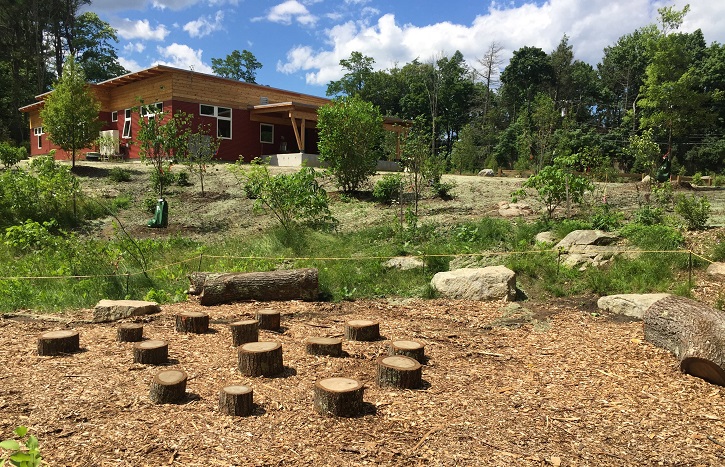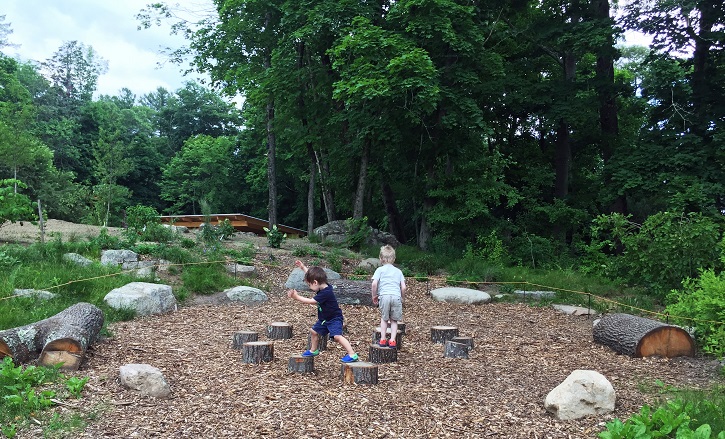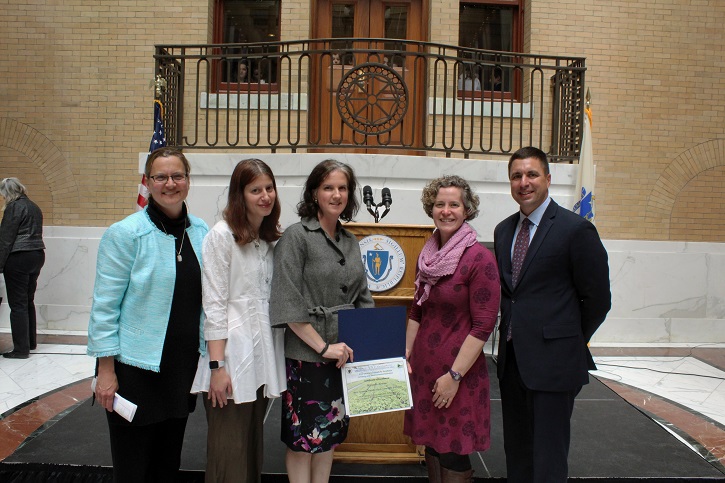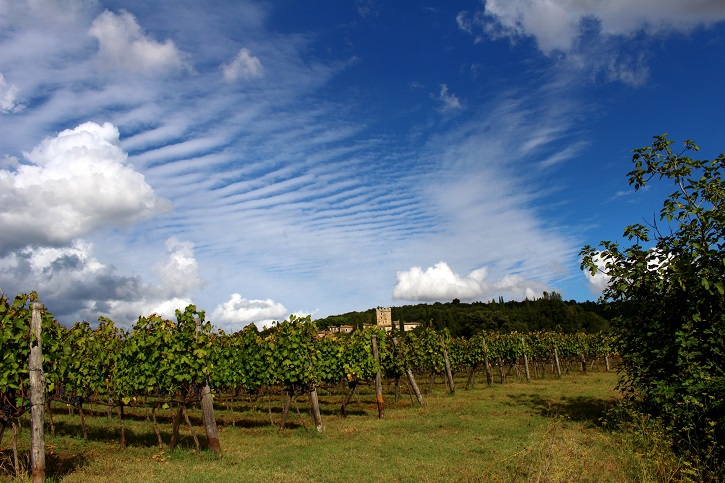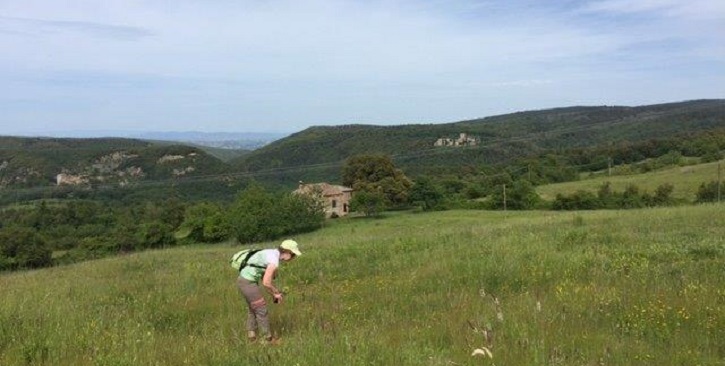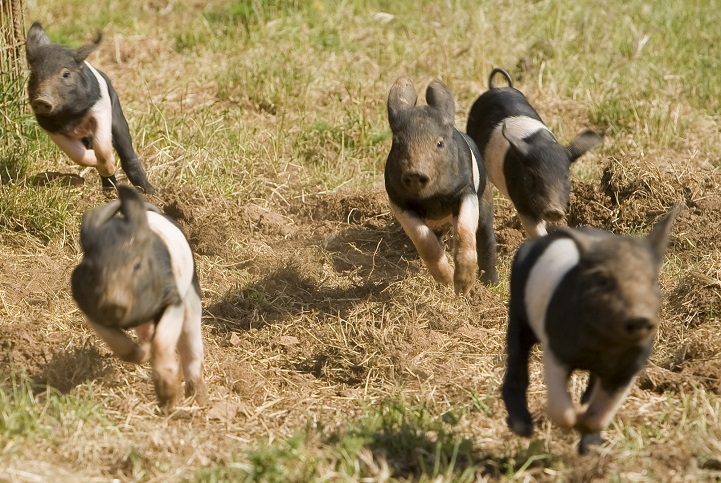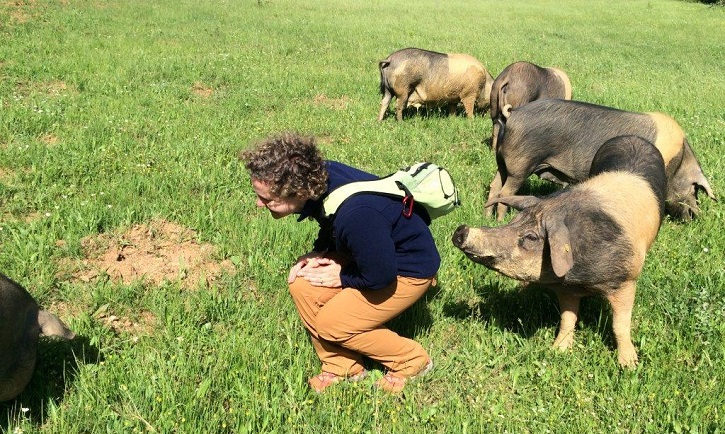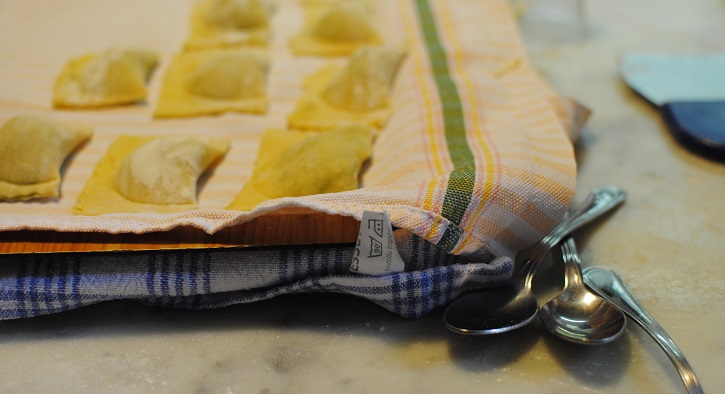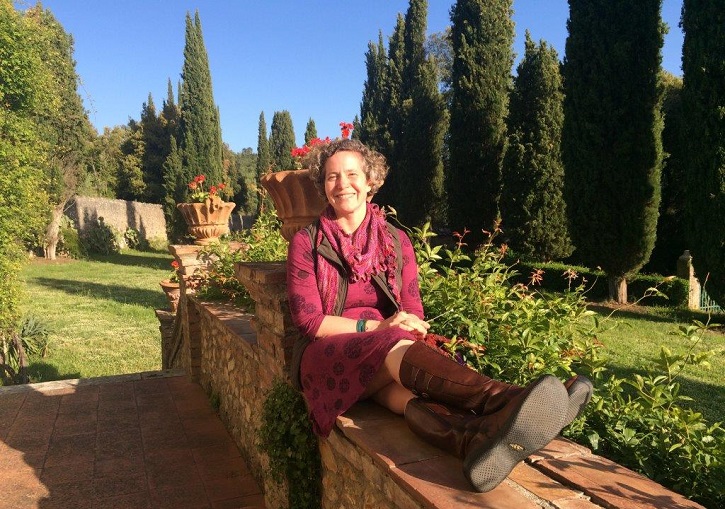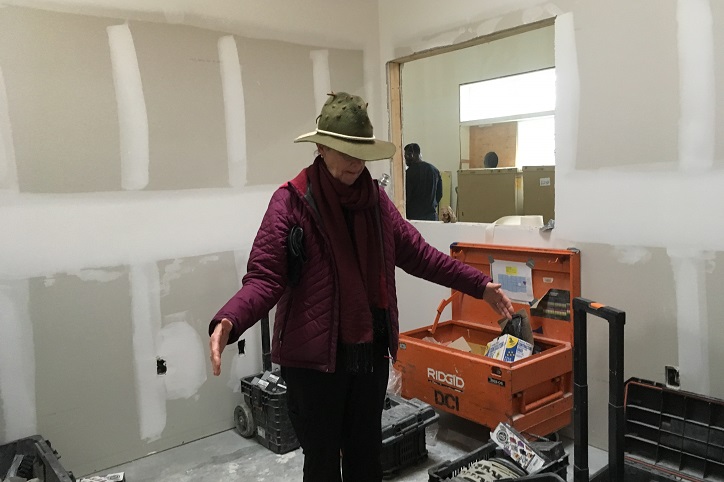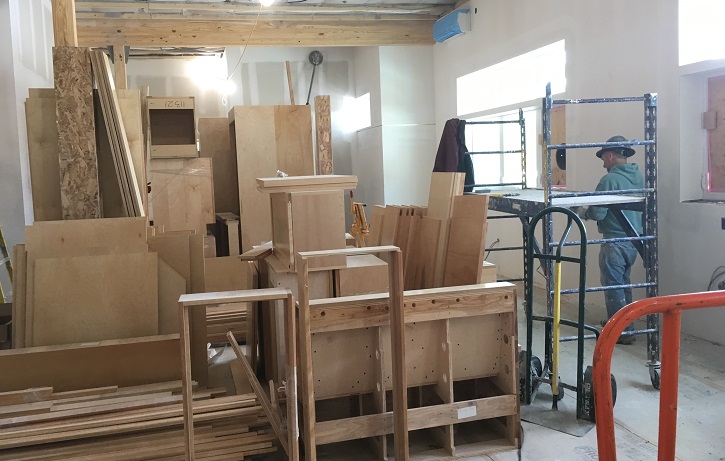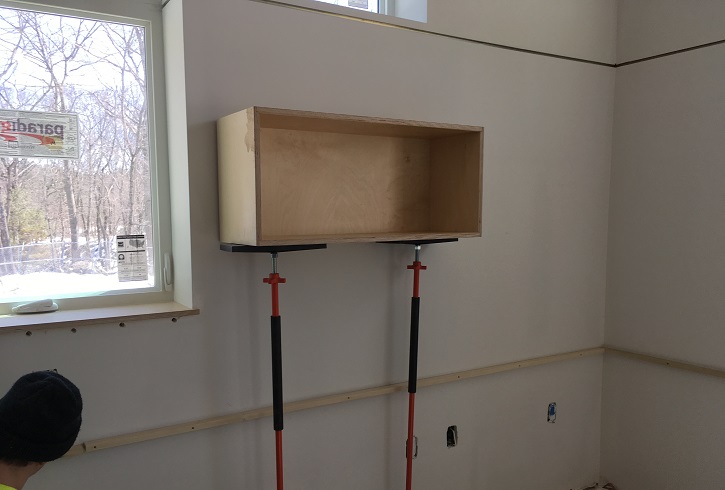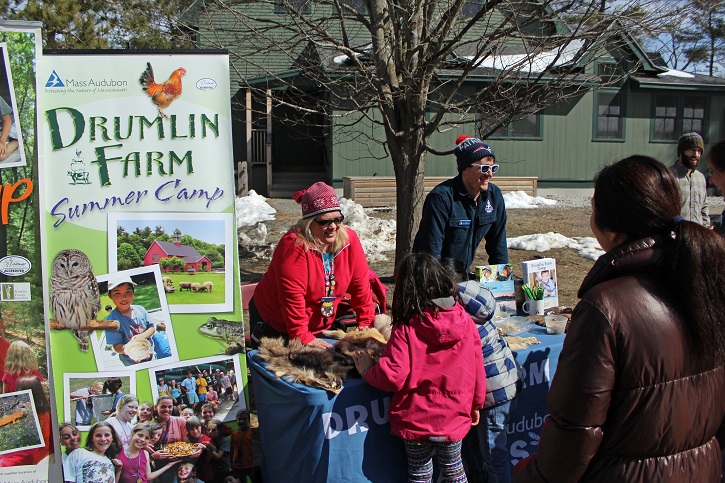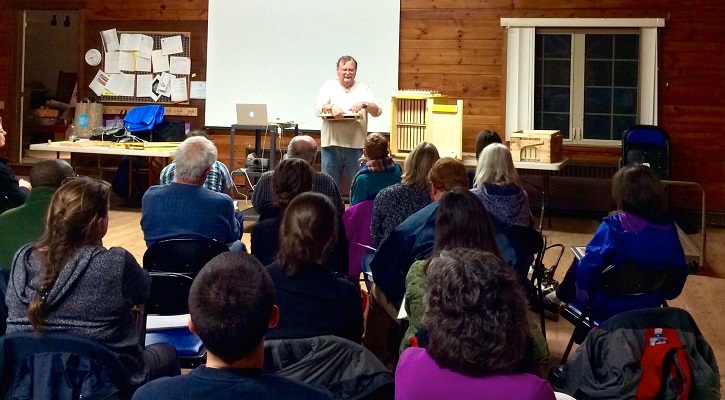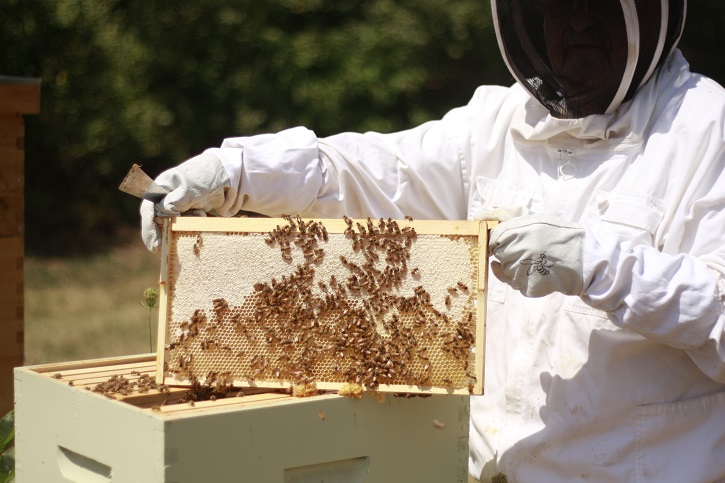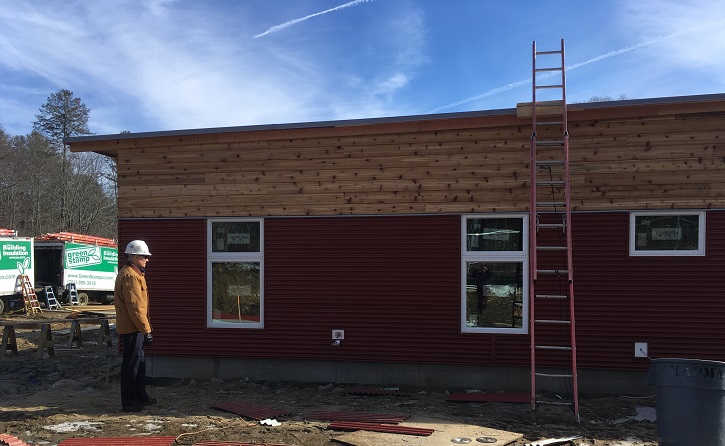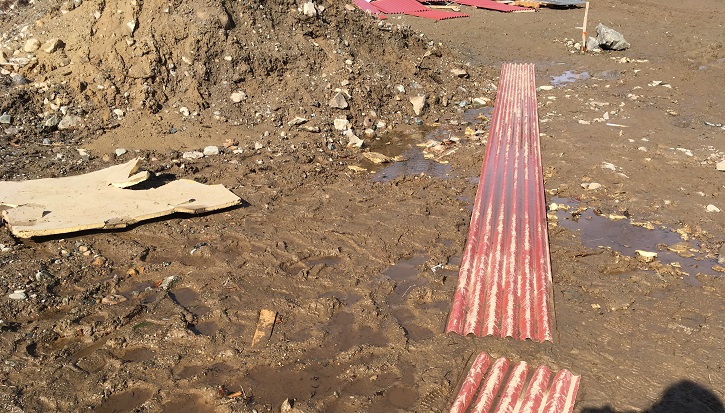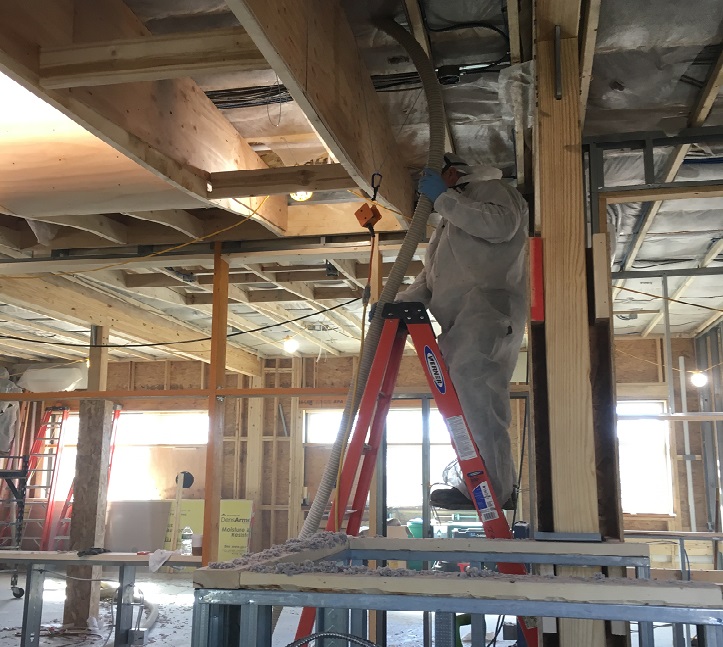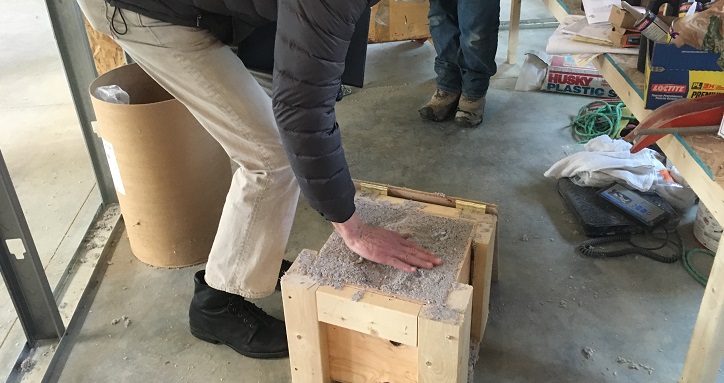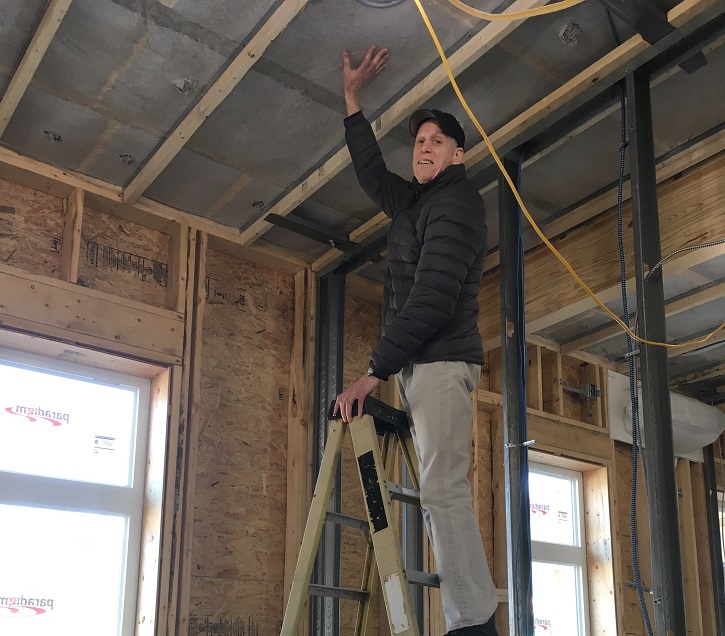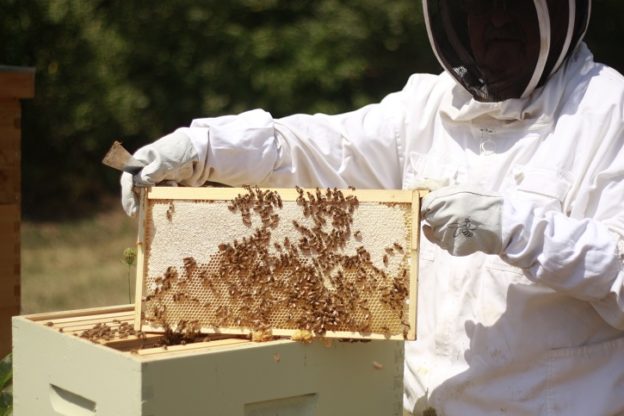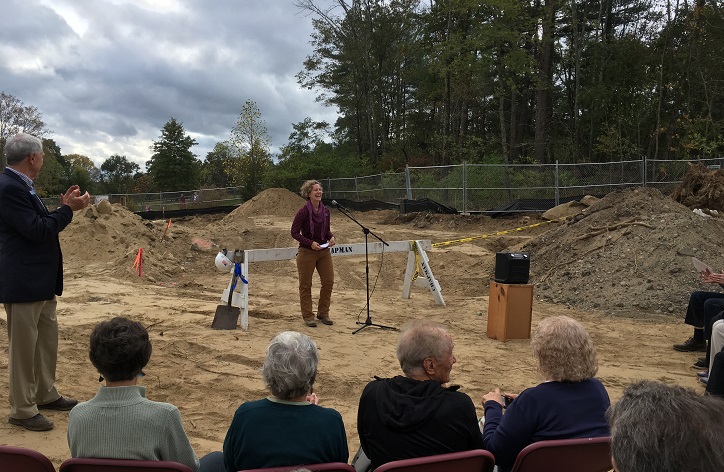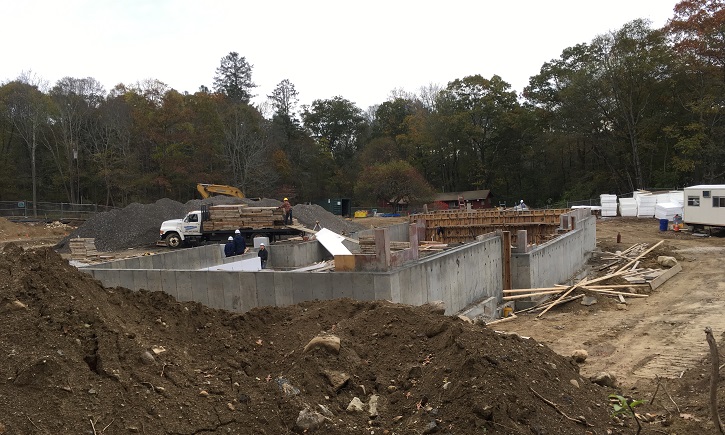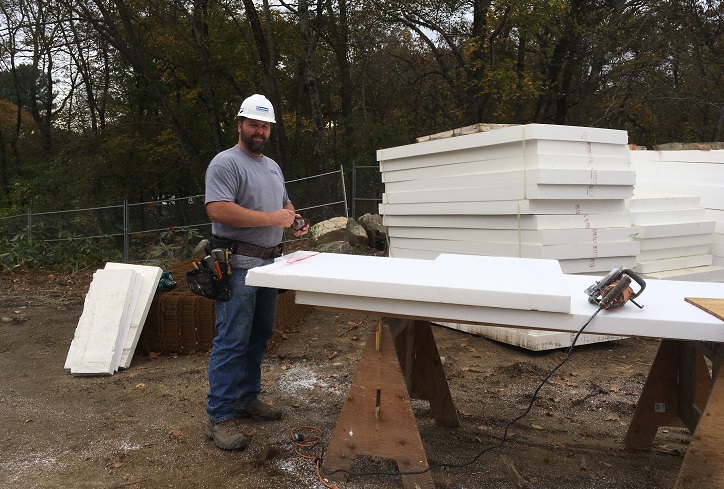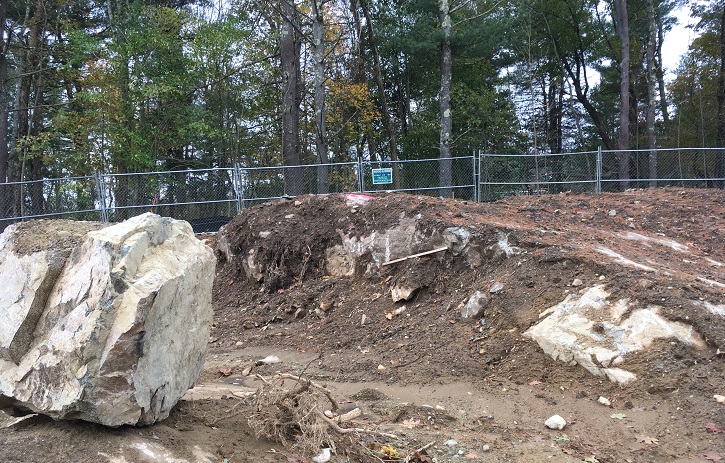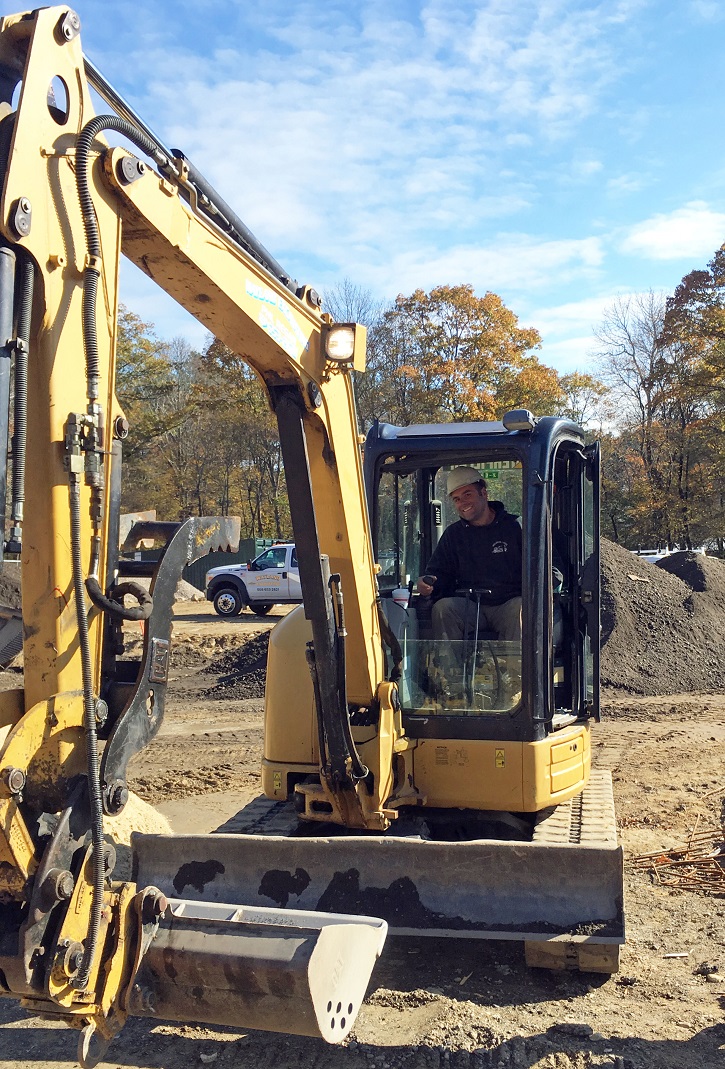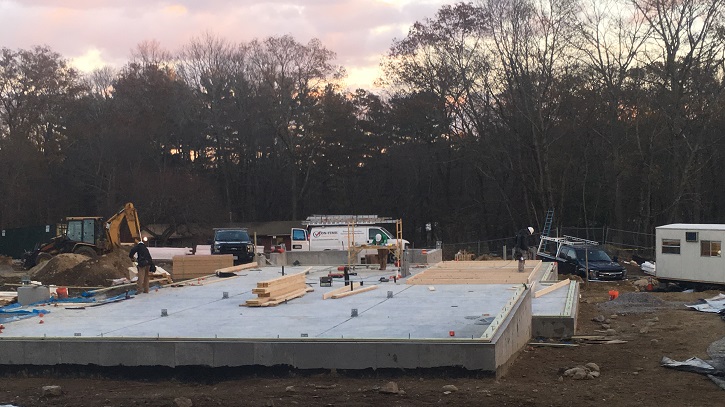This past Saturday, Drumlin Farm’s annual farm-to-table fundraiser gala, Moon Over Drumlin, honored our incredibly talented and hardworking volunteer, Anne Patterson, with the Jonathan Leavy Award for Outstanding Volunteer Contributions. Since 2001, Anne has been a stalwart Drumlin Farm volunteer, contributing thousands of hours to the farm during that time. Nearly every day in the winter and spring she can be found in the greenhouse, where she manages our seedling operation, planting seeds – one by one, flat by flat – to grow the plants that fill 30 acres of farm fields and feed thousands of people before the harvest ends. She trains other volunteers and tackles the toughest of field chores year-round, making her an indispensable member of the crops team.
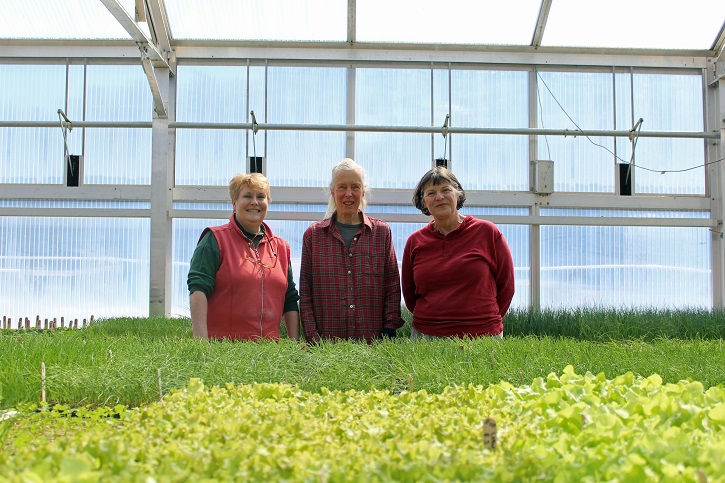
Anne (center) with her fellow volunteers.
Noted for her excellent, calculated, and precise methods of planting and willingness to always lend a hand, Crops Manager Matt Celona expressed, “It’s difficult to measure or put into words all that Anne has given to Drumlin—she’s part of the team, and she stands alone doing her own thing year-round, in all weather, bringing others here, teaching and delighting them with stories and brain-melting explanations of ‘simple’ mathematical concepts. Over time, Anne has taught me to introduce her to others not as a ‘retired mathematician,’ but as the voluntary farmer she most certainly is. Thank you, Anne.”
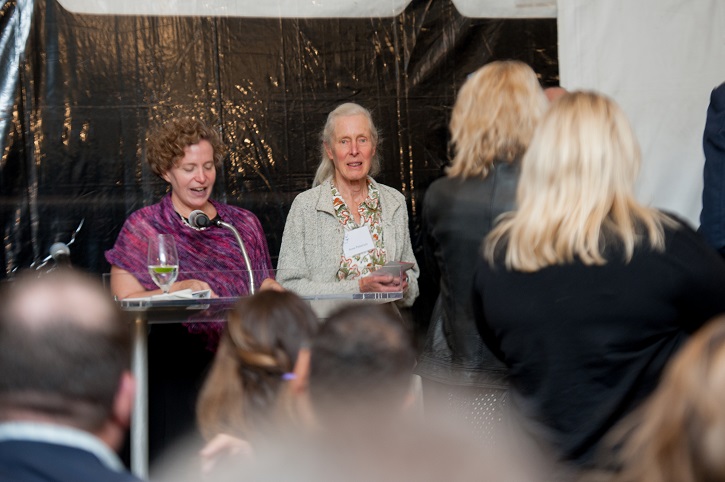
Anne Patterson receiving her award and standing ovation. ©Sara Colket
Upon receiving the award, her heart warming, comical, and poignant acceptance speech sparked inspiration in the audience, which they showed with a standing ovation. The Jonathan Leavy Award for Outstanding Volunteer Contributions was established in 2017 in his memory, to recognize a volunteer who has made significant contributions to Drumlin Farm during the previous year and who demonstrates the qualities of dedication, collaboration, and commitment that Jonathan brought to his work. Moon Over Drumlin has become a night to not only taste creative plating’s by local chefs, but also honor and recognize all the pieces that make Drumlin Farm the special place it is, in which volunteers are at the heart.
Volunteers are vital to Drumlin Farm’s success, contributing to a wide range of projects in the field, at programs and events, admissions, and beyond. Without volunteers like Anne and Jonathan, we would not be able to cultivate and share the bounty of nature, farming, and education that we do today. If you’re interested in volunteering, please contact Pam Sowizrol at [email protected].
Many thanks and congratulations to Anne from everyone at Drumlin Farm!



